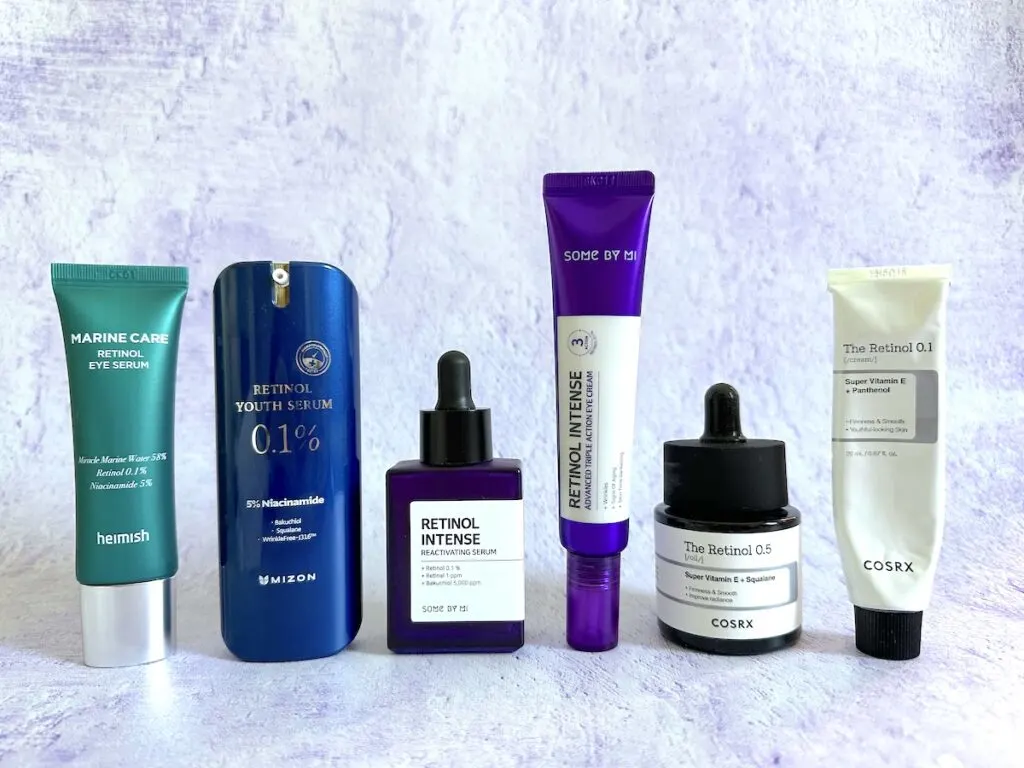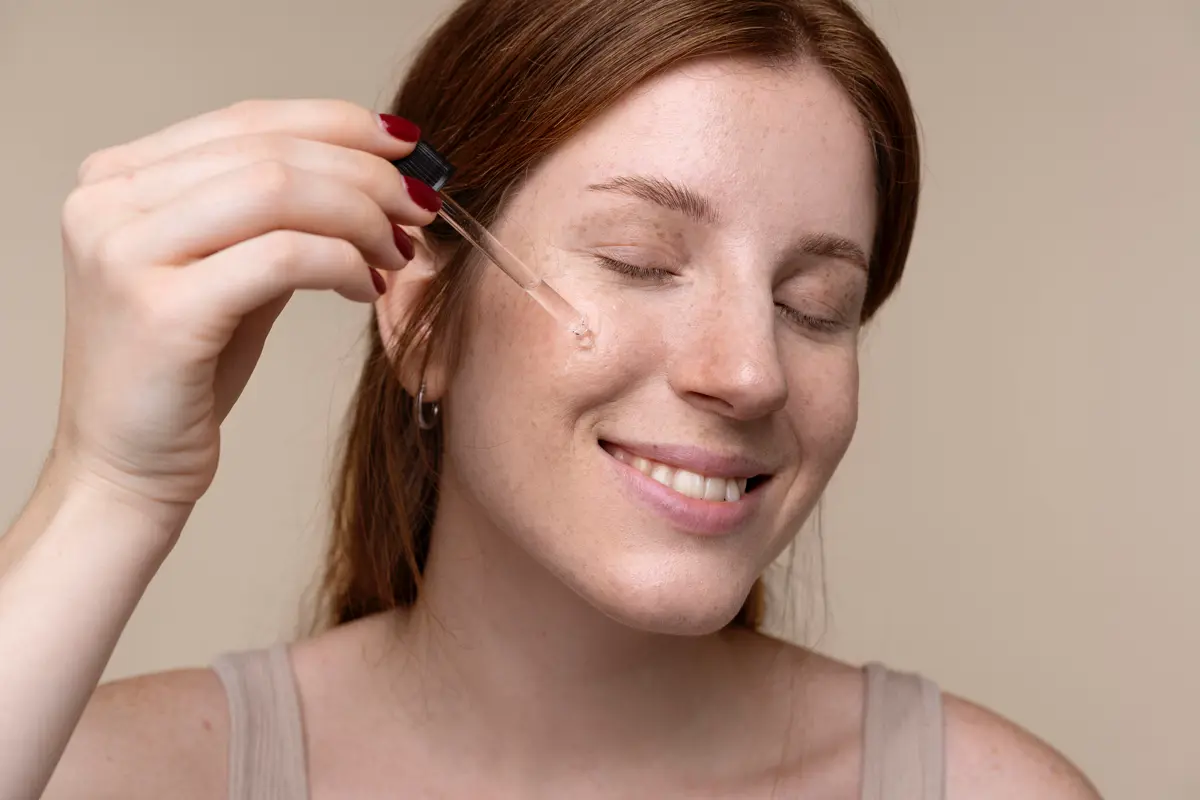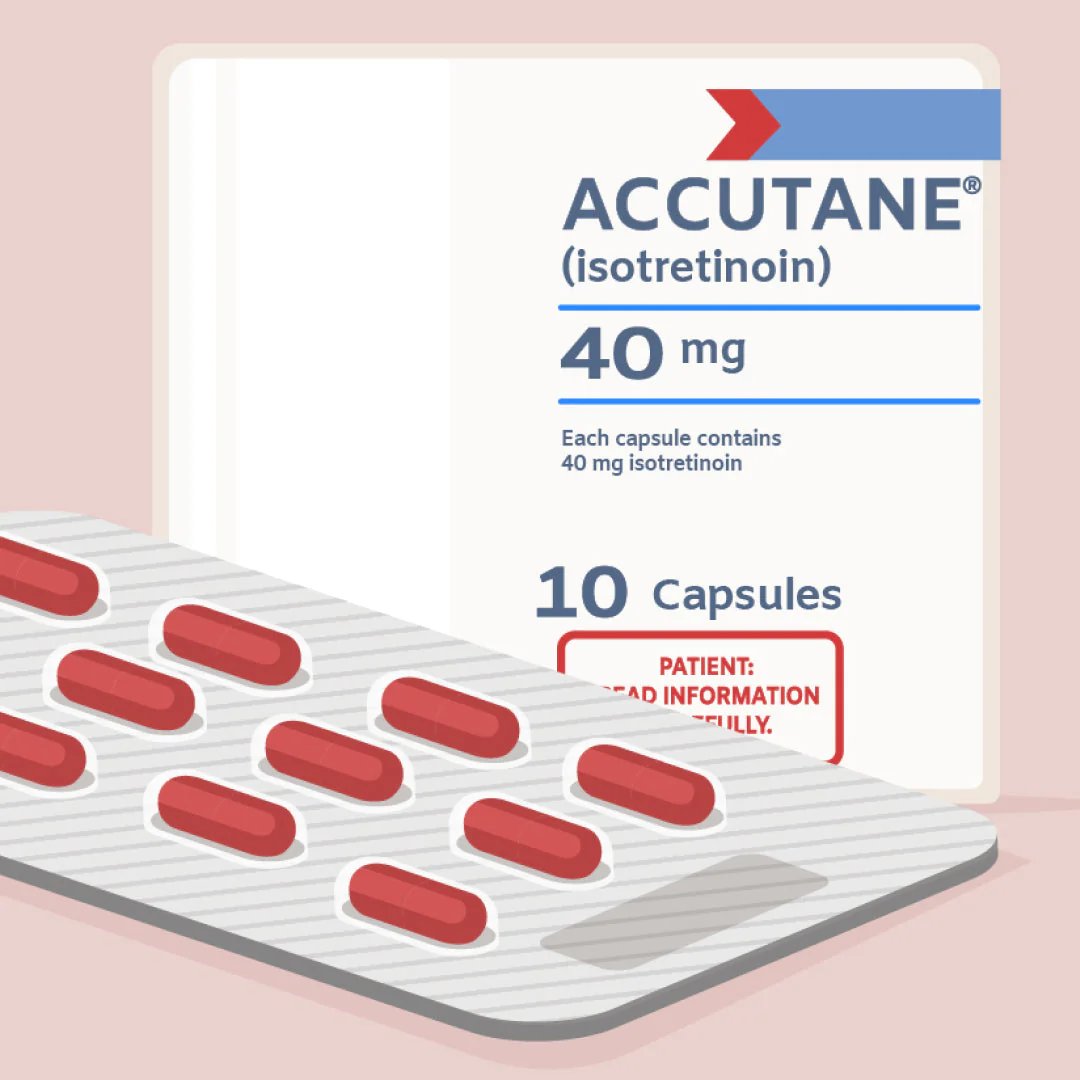At DermOnDemand, we help patients choose the best retinol products recommended by dermatologists. Retinol treatments are the gold standard in anti-aging skincare. With us, you can get a plan that fits your skin type without waiting weeks for an office visit.
Key Takeaways
- The best retinol products recommended by dermatologists vary by skin type and concern, with creams often preferred for dry skin and serums for oily or normal skin.
- Prescription retinoic acid remains the gold standard for strong anti-aging results, while encapsulated retinols and retinaldehyde offer gentler yet effective options.
- Beginners should start with low strength products, apply them two nights per week, and gradually increase frequency to help the skin adjust.
- Side effects like dryness and peeling can be managed with moisturizer, sunscreen, and by avoiding harsh actives until the skin adapts.
- Consistent use over several months is needed to see benefits such as smoother skin, fewer wrinkles, and reduced acne scars or dark spots.
Top Dermatologist Recommended Retinol Products
Number One Retinol Brand Used by Dermatologists
The brand most commonly used by dermatologists is one that delivers strong results and is safe for use. These products have clinical data and a proven track record of trust in the field. Prescription retinoic acid is still the gold standard and is often the first choice in clinics.
Dermatologists prefer brands that use tested ingredients, simple formulas, and clear instructions. Many of these brands are also backed by medical studies. Patients often remain loyal to these options because they achieve results without experiencing unnecessary side effects.
- SkinCeuticals Retinol 1% Night Cream: A high-strength retinol cream (1%) designed to reduce the appearance of deep wrinkles and age spots. Strong formula so best for those already using retinoids or under dermatology supervision.
Buy here - La Roche‑Posay Retinol B3 Serum: A gentler retinol product that includes B3 (niacinamide) to calm irritation. Good choice for sensitive skin or first-time retinol users.
Buy here - The Ordinary Retinol 0.2% in Squalane: Low-strength, budget-friendly option that delivers retinol in a squalane base, which adds hydration while being more tolerable for beginners. Buy here
Best Retinol for Wrinkles and Mature Skin
For people with signs of aging, a dermatologist recommends a retinol cream with stronger strength can help. These products boost skin cell turnover and stimulate collagen. Patients over 50 may require stronger retinol treatments to address wrinkles and improve texture.
If skin feels dry, dermatologists often pair retinol with a hydrating cream. This keeps skin balanced while still fighting lines. Regular use over months leads to smoother, firmer skin.
Best Retinol Creams and Serums
Retinol cream is rich and works well for dry or sensitive skin. Serums are lighter and absorb quickly, making them ideal for oily or normal skin. Encapsulated retinols in both forms are gentle yet effective, as they release slowly into the skin.
Pros and Cons of Creams vs. Serums
When you pick between a retinol cream and a serum, think about what works best for your skin. Each has good points and limits.
- Retinol Creams
- Pros: Add moisture, work well for dry or sensitive skin, feel soothing.
- Cons: Can feel heavy on oily skin, takes longer to absorb.
- Retinol Serums
- Pros: Light texture, absorbs fast, easy to layer in a skincare routine.
- Cons: Gives less moisture, may cause dryness if used without a hydrator.
Best Retinol for Beginners
People new to retinol should start with a low-strength product. Use it twice a week and gradually increase the frequency. Encapsulated retinols are gentle yet effective, helping the skin adjust.
It is also smart for beginners to apply retinol after a light moisturizer. This step lowers irritation while the skin builds tolerance. With steady use, results show within a few months.
Best Retinol for Sensitive or Acne-Prone Skin
Sensitive or acne-prone skin needs mild products. A dermatologist’s retinol cream with soothing ingredients helps balance the skin. For acne scars, low-strength retinol treatments can renew skin cells without causing breakouts.
Dermatologists often suggest patch testing before full use. Apply retinol to a small area of the face for a few nights. If no reaction appears, move on to full application.
Best Retinol for Hyperpigmentation
Dark spots and uneven tone can fade with the help of retinol. These products stimulate collagen and speed up skin cell turnover, but in some cases, hyperpigmentation may be linked to conditions such as pigmented contact dermatitis. A consistent skincare routine can help reduce hyperpigmentation over time.
Results are slower with hyperpigmentation than with fine lines. Most people see clearer skin after 3 to 6 months. Sunscreen is key, since sunlight can undo progress.
Best Drugstore and Prescription Options
You can find dermatologist retinol products at the store or by prescription. Drugstore creams and serums are often more affordable and easier to try. Prescription retinoic acid is stronger and works faster, but may cause more side effects.
Drugstore products are a good first step for beginners. Prescription options are better for stubborn wrinkles, acne scars, or advanced signs of ageing. A board-certified dermatologist can help you pick the right path.
Best Retinaldehyde Products
Retinaldehyde is a vitamin A derivative close to retinoic acid. It gives strong results with less irritation than regular retinol. Dermatologists use it for patients who want results but have sensitive skin.
This option is well-suited for individuals who have previously tried regular retinol but discontinued use due to side effects. Retinaldehyde offers visible anti-aging results while keeping comfort in mind, making it a useful option alongside dermatologist-supervised anti-aging treatment.
Which Retinol Gives the Best Results?
The best results come from dermatologist-supervised retinol treatments. Prescription retinoic acid works best for wrinkles and acne scars. Encapsulated retinols or creams are better for beginners or people with sensitive skin. The right choice depends on your skin type and concern.
Combining retinol with a simple skincare routine helps the results last longer. A gentle cleanser, a hydrating cream, and daily sunscreen support retinol’s effects. This makes the treatment safer and more effective.
Understanding Retinol: What Dermatologists Want You to Know

How Retinol Works and Its Skin Benefits
Retinol is a vitamin A derivative. In the skin, it turns into retinoic acid. This speeds up skin cell turnover and stimulates collagen. The result is smoother skin and fewer signs of ageing.
Dermatologists also use retinol for acne scars and clogged pores. By keeping skin cells moving, retinol clears blockages that lead to breakouts. This dual role makes it one of the most trusted skincare treatments.
Possible Side Effects and Precautions
Retinol may cause redness, dryness, and peeling while the skin adjusts. Start with a low dose and use every other night at first. Always pair retinol with moisturizer and sunscreen.
How to Manage Common Side Effects
Dermatologists suggest simple steps to make retinol easier to use. These tips help lower redness and peeling while your skin adjusts.
- Put on moisturizer before and after retinol (sandwich method) to ease dryness. Choosing the best moisturizer for dry skin dermatologist recommended can further reduce irritation and support barrier repair.
- Start with two nights a week, then slowly increase.
- Wear sunscreen each day since retinol makes skin more sensitive to the sun.
- Do not mix retinol with strong scrubs or high-strength vitamin C until your skin adapts.
Is A313 Stronger Than Retinol?
A313 has vitamin A derivatives but is not the same as prescription retinoic acid. Some people like it, but studies show prescription retinol treatments are more reliable. Dermatologists still view retinoic acid as the gold standard.
How Dermatologists Choose the Best Retinol
Board certified dermatologists look at the strength, formula, and skin type. They only choose products with clinical proof and safe results. The DermOnDemand team guide patients on whether a cream, serum, or prescription retinol fits best.
They also consider patient goals. Some want fast anti-aging results, while others want mild care with fewer side effects. A tailored plan ensures both safety and success. You can also start treatment online with DermOnDemand to receive a dermatologist-designed retinol plan within 24 hours.
Choosing the Right Retinol for You

By Skin Type
Oily skin can handle stronger formulas. Dry or sensitive skin benefits from creams or encapsulated retinols. Pick a dermatologist retinol product that matches your skin type.
By Skin Concern
Wrinkles, acne scars, and dark spots need different care. Retinol cream is good for anti-aging. Serums may work better for hyperpigmentation. The right choice depends on your main concern.
Dermatologist vs. Over-the-Counter Retinol
Over-the-counter retinol is gentle and readily available. Prescription retinoic acid is stronger and works faster. If you are not sure where to start, DermOnDemand can help guide your choice.
Safe Use and Expert Application Tips
When and How to Apply Retinol
Put retinol on at night after washing your face. Follow with moisturizer. Start twice a week and gradually increase as your skin adjusts. This lowers irritation and builds tolerance.
Dermatologists also remind patients not to expect overnight results. Retinol takes time, and skin improves with steady use. Being consistent is more important than using high strength too fast.
Combining Retinol With Other Products
Do not use retinol with strong scrubs or acids at the same time. Pair it with mild cleansers and hydrating serums. Use sunscreen in the morning to protect new skin cells.
Moisturizers containing ceramides or hyaluronic acid help maintain a strong skin barrier. This support makes retinol treatments safer and more comfortable
No. Retinol is a vitamin A derivative that changes into retinoic acid in the skin. Retinoic acid is stronger and used in prescriptions.
Yes. Start with a low-strength formula and encapsulated retinols. These are gentle yet effective as your skin adjusts.
Most people see smoother skin in 6 to 8 weeks. For fewer wrinkles or acne scars, results may take 3 to 6 months to appear. The key is steady use and patience.
Yes, but go slow. Avoid strong scrubs or acids on the same night. Keep your skincare routine simple to avoid irritation.
No, but sunscreen is essential. Sun makes the skin more sensitive, so daily SPF use is non-negotiable. Retinol is safe year-round if used with care.








